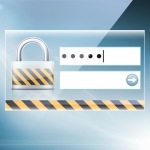NetWorthy Systems Blog
The problem with carrying around an expensive, portable piece of equipment is that it's possible for someone to pick it up and run with it. According to LoJack, a security firm that focuses on stolen property, two million laptops are stolen each year. What should you do if you are a victim of laptop theft?
This has been a pretty common topic for us on the NetWorthy Systems blog. We've seen a lot of Beaumont clients and customers suffer the consequences when online retailers and other account providers experience a security breach. It is equally vital for consumers to know what to do in the event of a security breach as it is the company that is actually breached.
Your identity has quite a lot of value, especially in the wrong hands. Security firm ZoneAlarm put together some numbers in 2011 concerning identity fraud, and it even shocked us. Let's talk about a few of these statistics and what it means.
On the topic of identity theft, social media accounts are becoming a high target for hackers, especially for spreading malicious viruses. To some, losing control over their Facebook or Twitter accounts could be just as devastating as having their credit card stolen. Trouble is, for many users, having one login account stolen means hackers have access to their other accounts too.
Computer viruses and malware have been around for a long time, and cybercriminals have always tried to package their malevolent doings under a veil of deception. One method that has been in place for a while now is called scareware. Often disguised as something that appears to want to help your computer, scareware will scam users into paying for a service that isn't beneficial.
Let's get theoretical here. Let's say your friend Hank suffers from chest pain. It could be nothing, but chest pain isn't something you want to mess around with, so you suggest that Hank goes to a doctor to get it checked out. There are certain things in life you don't just let happen without getting an assessment to make sure they don't turn into bigger issues, right? Your business's IT security is one of those things.
Did you know? Microsoft reported in May that every one in 14 downloads from the Internet may now contain malware code. Keeping your business protected is extremely important. Fortunately there are plenty of tools out there that do most of the protecting for you, but these tools need to be managed and kept up to date.
Still haven't found all the right gifts for this holiday season? You are on your own there - but we CAN help ensure a safe online shopping experience. Internet shopping has become widely popular over the years, and this year retailers have seen a big increase in mobile transactions as well. Consumers can skip the lines and the crowds and save a lot of cash in the process. Online shopping is generally safe, although there are a few tips you'll want to be aware of before going virtual shopping this holiday season.
Email is (and has been) a prime method of communication for businesses of all sizes. With email comes a whole slew of issues that are essentially synonymous with the technology; spam, information overload, phishing, and information privacy. Even Beaumont small businesses that only do business locally are at risk of these issues. Personal email accounts are equally at risk. Employing proper precautions and practices whenever communicating via email is very important to prevent the risk of security compromises, monetary loss, and even legality issues.
Security is an important aspect to a company's continuity, and while portions of business security involve things like anti-virus and firewalls, other aspects of security can't be handled by a piece of equipment. In these cases, your organization needs to create security policies, and keep them up to date as the company grows and changes. There are many policies and sub policies that are necessary for any organization that, if non-existent, can cause chaos down the road.
Sometimes studies like these are laughable, but nevertheless, worth discussing. Norton's latest Cybercrime report suggests that people who fall victim to malware are statistically more likely to be mugged in real life. If someone is careless when it comes to online security, could that really reflect how susceptible they are in everyday life?
Prominent companies falling victim to hacker has become all too common in the news. Some of the larger breaches in security involve the compromise of thousands of customers' information. Definitely not the kind of press you want, not to mention the irreparable damage to your business. This can be a little scary for a small business owner, especially if you consider that these large companies have the best cyber security money can buy.
Having strong passwords for your online accounts is very important, but sometimes you may want a little more protection in the event your password gets stolen or someone forces their way through it. If you use Google's Gmail service, you can set up your account, then you will need two forms of authentication to get into your email.
Global Payments, a credit card processing firm, announced that as many as 1.5 million credit card numbers were stolen due to a security breach last month. Issues like this seem more and more common place in the news and it is important to know what to do if you suspect that your credit card has been hacked.
Losing your smartphone can be a blood-chilling experience. The rush of worry, followed by the frantic dash around the last couple of places you've been searching high and low for your phone when you thought you put it in your pocket. The slow, creeping fear that your phone has been stolen before you could return to the place you left it. Well, for Android OS users, they now have a backup plan.
Do you have confidence in your company backup solution? If your servers went down now, would you be able to rely on the data you have backed up? No matter how advanced or in-depth your backup system is, you won't know if it works unless you test it. If you don't test your backup system, how can you have confidence in it?




















